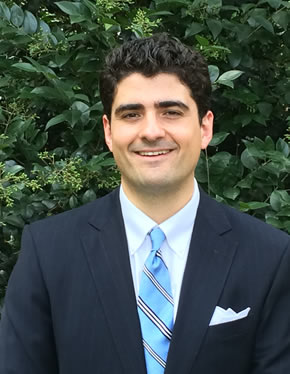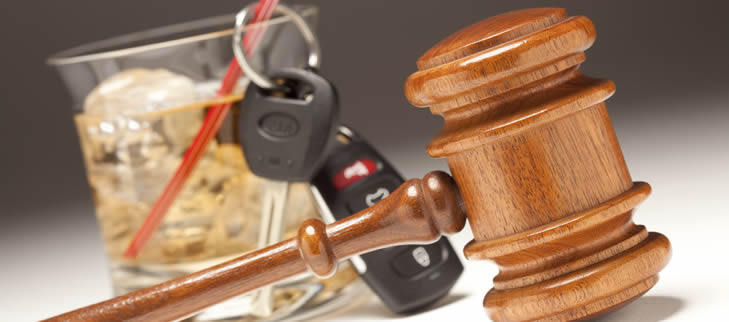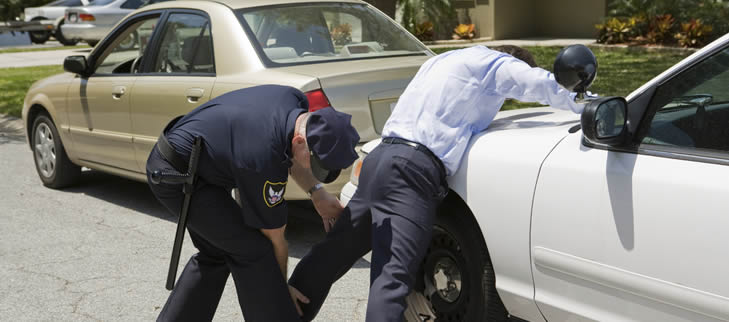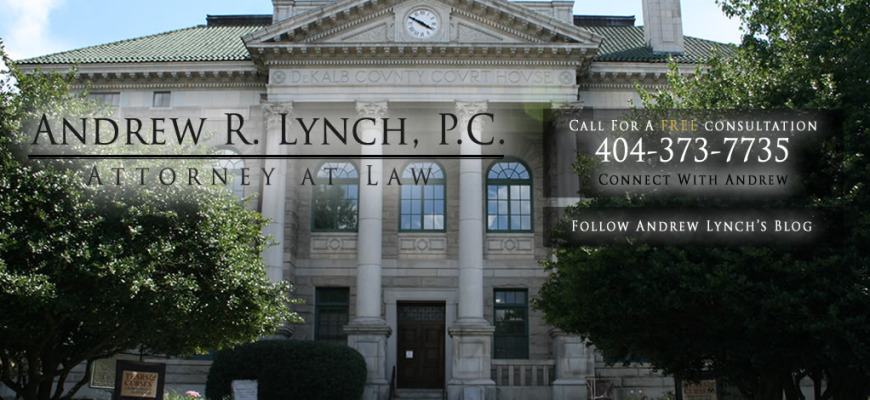D.C. Legalizes Personal Use Marijuana

Personal possession of marijuana legal in Washington D.C. has become the law today!
Andrew Lynch Awarded Super Lawyer’s Rising Legal Star Status 2015

Andrew Lynch was awarded the status of Super Lawyer’s Rising Star 2015 for the area of Criminal Defense. This award is only given to the top 2.5% of lawyers throughout the county. Click here to see more.
“Super Lawyers is a rating service of outstanding lawyers from more than 70 practice areas who have attained a high-degree of peer recognition and professional achievement. The selection process includes independent research, peer nominations and peer evaluations.”
Misdemeanor Probation Violations Thrown Out by Georgia Supreme Court

In SENTINEL OFFENDER SVCS., LLC v. Glover et al, 766 S.E.2d 456, Supreme Court of Georgia, this practice was stopped.
Specifically the court found “We agree with the trial court that under current Georgia statutes, the tolling of a misdemeanor probationer’s sentence is not permitted. ‘Statutes providing for the suspension of a sentence or the probation of a defendant must be strictly followed.’ As found above, courts utilizing probation systems established pursuan are specifically precluded from applying the provisions of the State-wide Probation Act, including those pertaining to tolling, to the defendants they sentence and we find no other grounds for such activity under Georgia statutory law. Unlike the statutes governing the supervision of felony probationers by the state DOC, there is no statute governing misdemeanor probationers which specifically authorizes the tolling of a probationer’s sentence. Rather, with respect to a misdemeanor conviction, sentences are fixed at one year and once a sentence has been served, jurisdiction over the defendant ceases.
Atlanta Municipal Court Warrant Amnesty Program

 Atlanta Municipal Court: Warrant Amnesty Program Now!
Atlanta Municipal Court: Warrant Amnesty Program Now!
As of today, February 2nd, 2015, the warrant amnesty program for City of Atlanta has begun. This will be in effect from February 3rd, 2015 to March 27th, 2015. All active warrants issued by the City of Atlanta before November 18th, 2015 will be be canceled. If you had an active warrant out, now is the time to act and get rid of your charges. Many people with warrants want to go to the courthouse to settle their cases, but are afraid of going in for fear that they will be arrested and put in jail upon arrival. You do not necessarily have to have committed a serious crime to have a warrant issued. A common situation is “failure to appear”, which could have been caused by something as harmless as forgetting to go to court for a speeding ticket.
Luckily now is an excellent time to deal with this. For the next eight weeks, you can go to the Atlanta Municipal Courthouse at 150 Garnett Street, to settle your case. The courthouse will be open from 7:00 AM to 5:30 PM, Monday through Friday. For those who cannot make it at those times, the court will be open on Saturday, March 21st, starting at 10:00 AM, for people to seek resolutions. You can either register online or in person.
If you live out of town, and need to follow up with this by doing a “plea in abstentia”, or are uncomfortable going on your own, hiring an attorney will be the most effective way to deal with this. The Lynch Law Group has much experience in dealing with this court and these warrants. Click below for additional information.
To Blow or Not to Blow: How does a refusal affect me at trial of my DUI at Trial?

Many people debating to fight a DUI case in court wonder how, if at all, my refusal of the state sanctioned test of my blood, breath, or urine for alcohol or drugs will affect them at trial. The short answer is, your trial judge will charge your jury that a refusal of the state requested test of your blood alcohol content is an inference that alcohol would have been present but not that you were impaired. In non lawyer terms, it will be legally inferred you did consume alcohol, but the state does not get the inference that you were impaired or “drunk” on the alcohol. The judge will also tell your jury that the test is voluntary and you do not have to consent to the officer’s requested test.
Atlanta Municipal Court D.U.I. Case Flow Managment Plan
If you are charged with a DUI in Atlanta Municipal Court, it is never a good thing or a pleasant experience. However, knowing the exact steps to take after the DUI will help you be prepared and make the entire process go by smoother.
For some people, things are better when they are organized. And it is best when faced with a huge problem, such as a DUI. Luckily, Atlanta Municipal is one of the courts that makes it easier. By invoking a case flow management plan, the Atlanta Municipal DUI court ensures that the final disposition of the case unless bound over to a State Court of Georgia, the final outcome, will be decided with 180 days, or six months.
It is important to appear in court, at the date and time listed on the yellow ticket paper given to you by the police after you are bonded out of jail. If you hire an attorney prior to your first appearance the court will allow that attorney to appear for you.
Atlanta Municipal Court’s DUI case flow structure is systematic and generally moves forward with the following court dates:
Arraignment Court Date (Your First Day in Court):
The arraignment occurs within twenty-four to forty-eight hours of arrest. If you hire counsel prior to this court date the Judge will generally excuse your presence fro this court date and all future court dates with the exception of the final plea court date. At arraignment Judge Ward of the Atlanta Municipal Court will inform you of your rights and the charges you are facing in his court. Generally he will not allow you to enter a plea of guilty and the case will be reset for you to hire counsel. It is best to have counsel to represent you at this date.
Inquiry/Status Court Date:
Two weeks, or fourteen days after the arrest, there is a court date where the judge inquires of the prosecutor and the defense lawyers the status of the case. A month into the case, or thirty days, there is another status inquiry with the judge and the prosecuting and defense attorneys. These court dates are generally to let the court know if the case is progressing as expected or to allow the attorneys to address with the Judge if there are issues involving the case that need to be raised and addressed to keep the case moving through the court system smoothly.
Atlanta Municipal Court’s DUI Court Generally:
Once your lawyer files an entry of appearance, a legal motion notifying the prosecutor you have hired a lawyer and are requesting the evidence in your case, you will not have to appear in court until the day when you must make your final plea in Atlanta Municipal Court: Guilty, or not guilty. This means that for two months, you and your lawyer can work on the case and decide what is your best way of dealing with the pending DUI. Your lawyer will make appearances for you, so you do not have to miss work, and he will work everything out himself with the prosecuting attorney without you having to even be there. If you want to appear in court you may, but once an attorney is hired the Judge only requires you to attend on the final plea court date.
Final Plea Calendar:
By two months, the defendant must announce either: a guilty or not guilty plea. It is there that the defendant and his attorney must decide whether or not they wants to do a jury trial or not. If you want a jury trial on the final plea date you and your lawyer will ask Judge Ward to send your case to the appropriate State Court of Georgia. Generally this is Fulton County State Court, but for DUI’s around Moreland Avenue in Atlanta it can also be Dekalb County State Court. If you move your case to State Court, you will have a new Judge and Prosecutor assigned to your case. Generally there is a lengthy period of time before your DUI will make it into court again.
Motions Calendars:
If you elect to waive your right to a jury, the court will place your case on either a motions calendar or trial calendar. The motions calendar is specifically to raise violations of your constitutionally or legal rights with the Judge and to ask him to make appropriate ruling to limit the admission of this evidence against you in court.
Bench Trial:
A bench trial calendar is available in Atlanta Municipal Court if you are comfortable having a Judge sit as the trier of fact in your case, as opposed to a jury or if you need your case resolved in a short period of time.
Generally speaking the goal of the the Atlanta Municipal Court is to have your case resolved within 180 days of arrest or to let you take your case to the State Court within in 60 days of arrest.
Mann 4 Sheriff: Campaign to Keep Jeff Mann Sheriff of Dekalb County
Our office would like to take a moment and acknowledge current Dekalb County Sheriff Jeff Mann, who is running as the incumbent on May 20th. Sheriff Mann is a genuinely kind man who has served our community well for years.
Last night Andrew and many others from the Dekalb County legal community hosted an event for Sheriff Mann at Manuel’s Tavern.
Anyone who would like to learn more about Sheriff Mann please go to his website or Facebook page.
Please get out and vote for Sheriff Mann on May 20th!
Criminal Procedure: What is going on?
How do I get a copy of my preliminary hearing “court recording” ? Can I have these charges lessened , expunged or sealed?: I was accused, arrested and convicted of Simple Battery, “Habitual offender” In the Court room at the Bond hearing my Ex-Husband told the judge as well as my witnesses that I didn’t hit him. They were then told that since I was arrested as a habitual offender for simple battery that it was to late to withdraw the charge.
Also charged with “Possession of a controlled substance with the intent to distribute” Name and quantity of controlled substance is not listed on the record I have obtained from my local Police Department.”
Andrew’s answer: “Convictions do not take place at the preliminary hearing level. The process, simply described, is you are arrested, a judge may consider whether there is probable cause supporting the warrant at a preliminary hearing, if so, the case will move to the prosecutor’s office, who then will formally file an accusation or pursue an indictment with your county’s grand jury, which is your notice the charges will not be dropped and the State is seeking a condition, after this point you may be convicted at trial or enter a plea of guilty or no contest to the charges in court.”
How can a warrant be issued for a person that was never ticketed, never questioned or seen by the police.
Friends Asks: “My friend wreck a car left the scene of an accident but was not caught by the police the passenger said he was driving. the police mailed the tickets to the passenger address although the driver don’t live there.”=
Andrew Answers: “The police only need to establish to a judge that there is probable cause someone was driving this car. There is no magic formula, only that based on what the police know a reasonable person would believe your friend was driving the car that left the scene.”
Search and Seizure

When can the police search my car and should I let them.
Being stopped by the police for any reason can be a nerve wracking experience even for someone who is not doing anything wrong. Add to that the guilt that comes with having been found breaking the law, the typical driver is not in the proper frame of mind to assert his or her rights at the time of the stop.
What you need to remember when you are stopped by the police is that we all have rights granted to us by the constitution and these cannot be taken away from us. One of these rights was granted to us by the fourth amendment. It guarantees the right to be free from illegal searches and seizures.
When you are stopped by the police for any reason, it is important to remember that they are not just allowed to search your vehicle for no reason. The majority of the searches of vehicles that the police conduct are lawful because the owner of the vehicle (that’s you) granted them permission to search the vehicle.
The police may tell you that this will all be easier if you let them search your vehicle or may try to intimidate you into letting them search your vehicle, and while you should always always ALWAYS be nice and polite to the police, you do not have to give them permission to search your vehicle.
You do not have to allow the police to search your vehicle, and they cannot do it over your objection unless they have “probable cause” (or a warrant). Probable cause is a somewhat vague term in the legal field, but it basically means the police have to have some good reason to suspect that you are up to something illegal. It is like a hunch of the officer but backed up by reasonable suspicion.
The police could have probable cause to search your vehicle as a result of your behavior, your appearance, or the appearance of your vehicle. For example, a smell coming from you (or the car) or slowed reflexes may indicate to the officer that you are under the influence of drugs or alcohol and he or she would likely have probable cause to search your car. Also, if you throw something out of the window or hide something under the seat, the officer will be able to search your vehicle.
Being stopped for a speeding ticket or an expired license or other minor traffic violations is not probable cause.
The two most common ways that the police get probable cause is to see contraband in plain view in your vehicle, or by smelling the contraband (or smelling the results of its use). In order to be sure the police do not to have probable cause to search your vehicle, don’t have or do anything illegal in your vehicle (or anywhere else, but especially not in your vehicle).
If for some reason you do come into possession of something that may be frowned upon by the police, make sure it is not in plain view from outside of the car. To minimize what is in plain view, if the officer asks you to get out of the car, it is wise to close the door to the car as you exit. Keeping anything of questionable legality in the glove compartment or the trunk is much better advice than to keep it in the interior of the car, where ir could be in plain view. However, this strategy is far from foolproof.
In reality, if the police have probable cause, they have probable cause to search for specific items, not specific parts of a vehicle. So for example if the police had probable cause to believe that you were in possession of marijuana, they can look for any place that marijuana could be hidden. This includes the locked glove compartment, trunk, or any other containers in your vehicle.
But remember, the police have to have probable cause to search any part of your vehicle unless you give them permission to search it. And you don’t have to let them.



